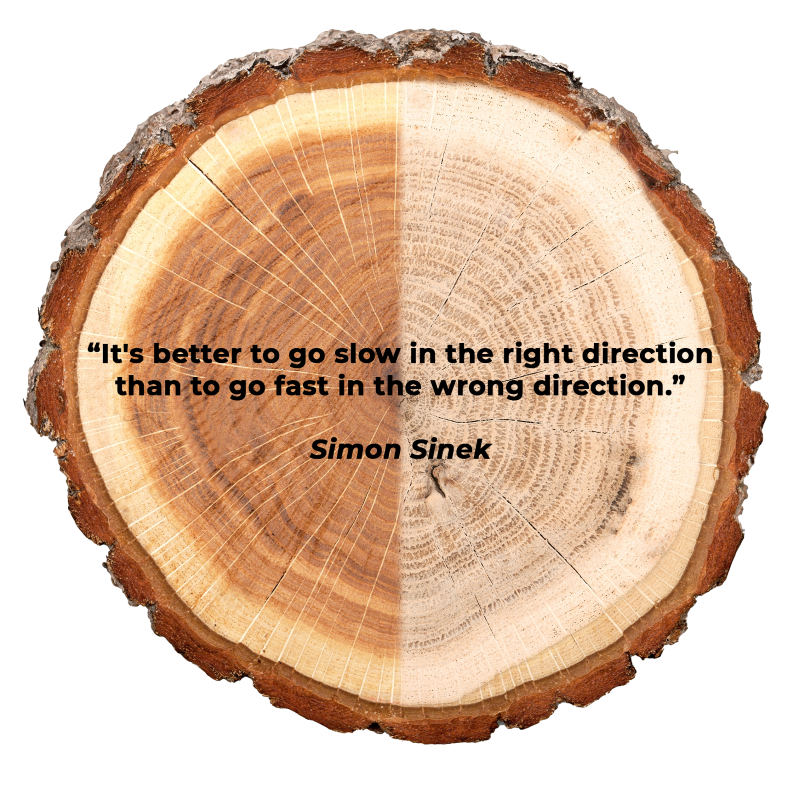
When it comes to decision-making in management, there’s often a lot of pressure to move quickly and make decisions as fast as possible. After all, time is money, and any delay in deciding can potentially cost the organization valuable resources, both in terms of time and money.
However, while speedy decision-making may seem like the best course of action in many situations, there are times when a slower, more deliberate approach can be more effective. In fact, there are several compelling reasons why taking more time to decide can actually be the best course of action.
Careful Consideration of Options 
Taking the time for slow decision-making allows for more careful consideration of all the available options. When decisions are made quickly, it’s easy to overlook important factors or potential pitfalls that may come back to haunt the organization later on. By taking the time to carefully analyze all the available options, leaders can make more informed and thoughtful decisions that are less likely to result in negative consequences down the line.
Enhanced Collaboration and Stakeholder Input
Another benefit of slow decision-making is that it allows for more collaboration and input from stakeholders. When decisions are made too quickly, there may not be enough time to gather input from all the relevant parties, including team members, customers, and other stakeholders. By taking a more deliberate approach, leaders can ensure that all voices are heard and all perspectives are considered, leading to better-informed and more widely accepted decisions.
Greater Team Buy-In and Support
Slow decision-making can lead to greater buy-in and support from team members. When decisions are made too quickly, team members may feel left out of the process or may not fully understand the rationale behind the decision. This can lead to resentment, frustration, and even reduced motivation and productivity. By taking a more inclusive and collaborative approach, leaders can help ensure that team members feel heard, valued, and invested in the decision-making process, leading to greater buy-in and support for the final decision.
Long-term Project Excellence
While rapid decisions may address immediate needs, deliberate and slow decisions allow for thorough problem analysis, and comprehensive evaluation, and ultimately lead to better outcomes with fewer regrets. In the long run, this approach supports an organization in achieving sustained excellence.
Balancing Urgency with Deliberation
Of course, there are some situations where quick decision-making is necessary, such as in emergency situations or when time is of the essence. It’s important to strike a balance between urgency and deliberation. Leaders must assess the situation and determine the appropriate level of speed and consideration required for making the best decision under the circumstances.
It Sets the Stage for Negotiations
When it comes to decision making in management, another valuable aspect of adopting a slower, more deliberate approach is that it sets the stage for negotiations. Effective negotiations are essential in resolving conflicts, reaching agreements, and achieving mutually beneficial outcomes. By allowing ample time for thoughtful considerations, collaboration, and stakeholder input, leaders create a foundation for successful negotiations.
Making use of a negotiation consulting expert can provide valuable insight and strategies to navigate discussion, overcome obstacles, and secure positive results, further reinforcing the importance of a thoughtful and methodical decision-making process. By prioritising thorough analysis, strategic collaboration, and deliberate decision-making, leaders can effectively lay the groundwork for fruitful negotiations that drive the organisation towards its goals with confidence and clarity.
Conclusion
In conclusion, the art of slow decision-making can yield significant benefits in management. While the power of quick decisions may be tempting, taking the time for careful consideration, collaboration, and team buy-in can ultimately lead to better outcomes and greater success for the organization.
By thoroughly analyzing all available options, leaders can make informed and thoughtful decisions that minimize the risk of future consequences. Additionally, involving stakeholders in the decision-making process fosters a sense of inclusion and ensures that diverse perspectives are considered, leading to more well-rounded and widely accepted decisions.
Moreover, slow decision-making promotes a culture of trust and empowerment within the team. When team members feel valued and included, their motivation and productivity increase, ultimately contributing to the organization’s overall success.
While there are instances where prompt decisions are necessary, finding the right balance between urgency and deliberation is key. Effective leaders recognize the importance of assessing each situation and determining the appropriate approach.
By embracing the power of slow decision-making, leaders can navigate complexities, mitigate risks, and optimize outcomes. Ultimately, it is the thoughtful and deliberate approach to decision-making that paves the way for long-term success in management.
Article by Association of International Project Management Officers (AIPMO®).